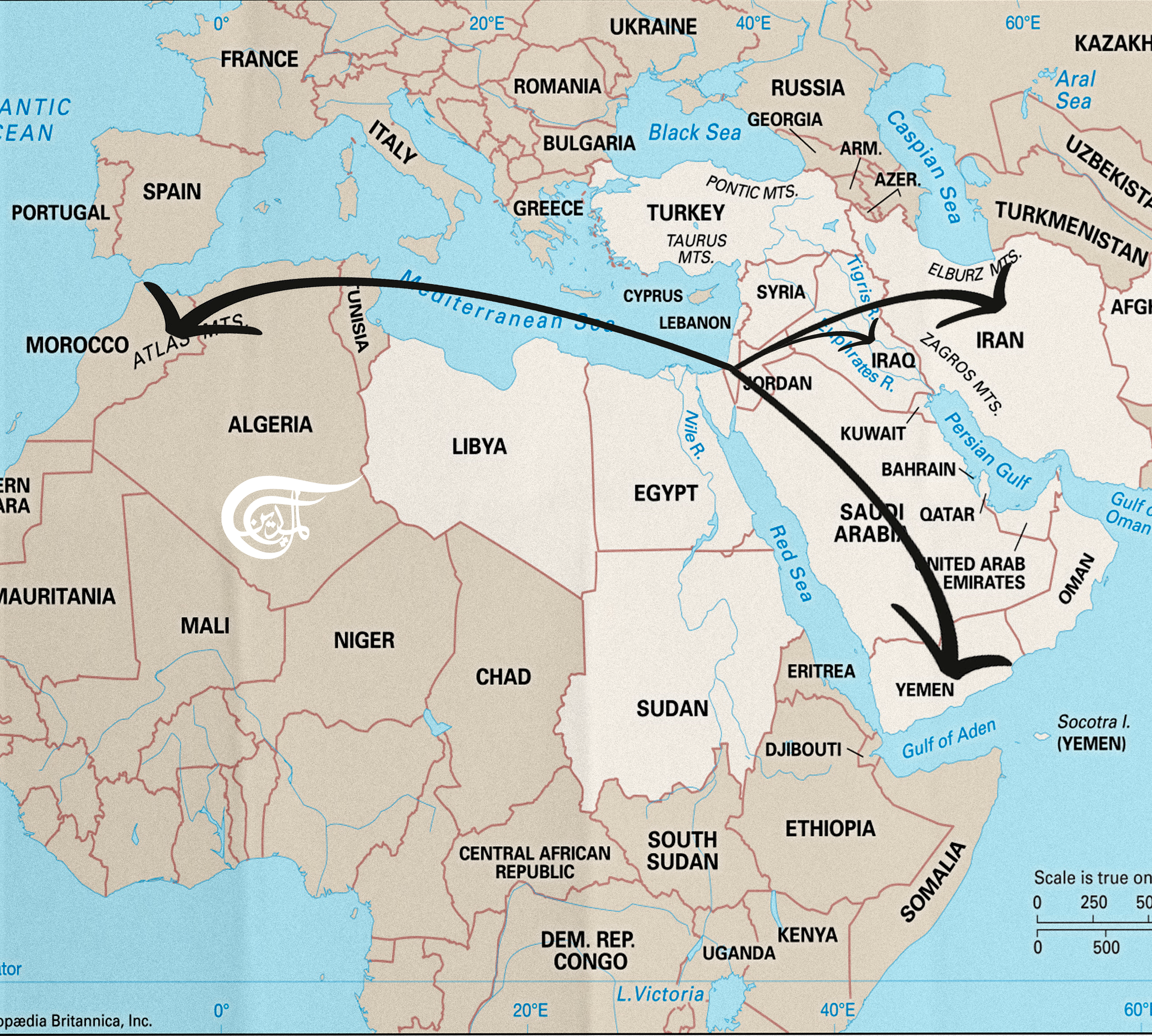The Central Myth of Zionism: Jews Have No Future in the Arab and Muslim World
The loss of 100 or so citizens to Iran, Iraq, Yemen, or Morocco would at best be terrible public relations for "Israel". The loss of 100,000 or more would be existentially disastrous.
The foundation of "Israel" in 1948 disrupted more than the lives of the Palestinians uprooted from their homes. The culmination of the Zionist project, driven largely by secular, European nationalist Jews, also ended numerous Jewish communities within the region whose presence stretched back before the appearance of Islam and even Christianity, to the dawn of the Jewish religion itself.
Flourishing communities such as those in Iraq, Iran, and Yemen were, for much of history, the centers of the Jewish world and deeply enmeshed within the societies that surrounded them. One of the most effective lies of the Israeli propaganda has been to posit the irreconcilability of Jewish and Arab identities as if it is impossible to be both. The existence of hundreds of thousands of Jews with origins from Morocco to the Gulf demonstrates otherwise.
Throughout the decades in which Arab leaders, in particular, pledged their opposition to the existence of "Israel" and its further colonization of Palestine, they have neglected to use one of the most powerful weapons at their disposal. Had Arab leaders in Iraq, Yemen or the states of the Arab Maghreb wished to truly damage the viability of "Israel", they could easily have opened the way for their historic Jewish populations to return, trading in their Israeli passports and citizenship for that which they, their parents or even grandparents lost.
The tactical argument
By this point, it has become clear even to the mainstream western opinion that the two-state solution envisioned by the Oslo Process is not even a remote possibility. Rather than the self-determination of an Arab state on the territories occupied in the Six-Day War of 1967, the central issue of the conflict has shifted to the political equality of all Palestinians within the territory of Mandate Palestine. The achievement of this goal would instantly nullify the concept of a “Jewish State” as Jews within the entire territory are already outnumbered by Palestinians, a demographic imbalance that will only grow with time.
Consequently, in terms of alleviating the colonial pressure on the Palestinians, as well as amplifying their demographic, and by extension political advantage, it makes complete sense for the surrounding countries to voluntarily reabsorb their Jewish former citizens, thereby removing them from the arena of conflict.
In the case of Yemen, we are speaking of roughly 430,000 people. Of Iraqi Jews, between 200,000 to 600,000, Iranian Jews number 200,000 to 250,000, and Moroccans some 473,000. Were these communities to return to their homelands in any significant number it would be a catastrophic erosion of "Israel’s" demographic position, as well as its pretensions to being central to the identity of all Jews everywhere.
The loss of 100 or so citizens to Iran, Iraq, Yemen, or Morocco would at best be terrible public relations for "Israel". The loss of 100,000 or more would be existentially disastrous.
Perhaps surprisingly given the intensity of its opposition to the Zionist state, the Islamic Republic of Iran is one of the regional countries best placed to facilitate this. Since the success of the 1979 revolution, Judaism has received official recognition along with other minority religions such as Christianity and Zoroastrianism, including political representation in parliament.
The Iranian leadership has consistently made clear the distinction it sees between Jews, an ethnoreligious community, and Zionists, purveyors of a racist political ideology. Still, the country's Jewish citizenry is a fraction of its pre-revolutionary size. Despite this, the future large-scale and permanent return of Iranian Jews is entirely conceivable if Tehran goes to the necessary lengths to assure them that their cultural, religious, and political freedoms would be guaranteed.
Iran would likely be apprehensive about repatriating hundreds of thousands of its former citizens, their children, and grandchildren, in light of the ongoing Israeli campaigns of sabotage and assassination against its nuclear program and other targets. In the long run, however, even a relatively small demographic decline would dramatically constrain the military and covert power of the Israelis, hamstringing their capacity to attack their neighbors.
A population drain of this kind could well lead to a self-reinforcing cycle, whereby other Israeli citizens witnessing outmigration may also choose to emigrate to countries where their long-term future is better guaranteed.
The moral case
This is also a question that may force itself on the governments of the region whether they choose to address it or not.
The Jews of the Arab and wider Islamic world to a significant extent continue to hold on to their eastern cultural heritage. To those governments and movements opposing the colonization of Palestine, this fact represents a unique advantage to be exploited. As both the global and regional environment becomes more hostile to "Israel", its behavior could become yet more erratic and desperate. By offering resettlement to their former Jewish communities, regional countries would both give them a peaceful way out and demonstrate that Jews do have a future in the region outside of occupied Palestine. Such a gesture would demonstrate to many the futility of sacrificing themselves for a colonial project that will inevitably fail.
Prior to the conflict, the Arab and Islamic world had nothing approaching the levels of persecution and discrimination as those suffered by the Jews of Christian Europe. In the aftermath of the Second World War and the exposure of the Holocaust to global awareness, the west could have earnestly confronted its own deeply rooted anti-Semitism. Instead, it chose to cynically back European Jewish ethnonationalism in Palestine.
For those struggling to end the colonial project in Palestine, an essential element of the strategy must be to demonstrate to enough Jewish Israelis that their own survival is not tied to the survival of "Israel" and that being a Yemeni, Iraqi, or Moroccan Jew does not exclude a person from membership of the Arab nation.
As well as the enormous economic benefits to be had from the reintegration of hundreds of thousands of highly educated and productive people, the value of the societal and cultural enrichment that would follow would be incalculable.
The peaceful repatriation of North African and Middle Eastern Jews to the countries of their birth or recent ancestry may seem like an idealistic pipe dream but it would not entail the creation of a radically new social dynamic. Rather it would be a return to the religious, cultural, and ethnic pluralism which has predominated in the region for so much of its history.

 Samuel Geddes
Samuel Geddes
 6 Min Read
6 Min Read












